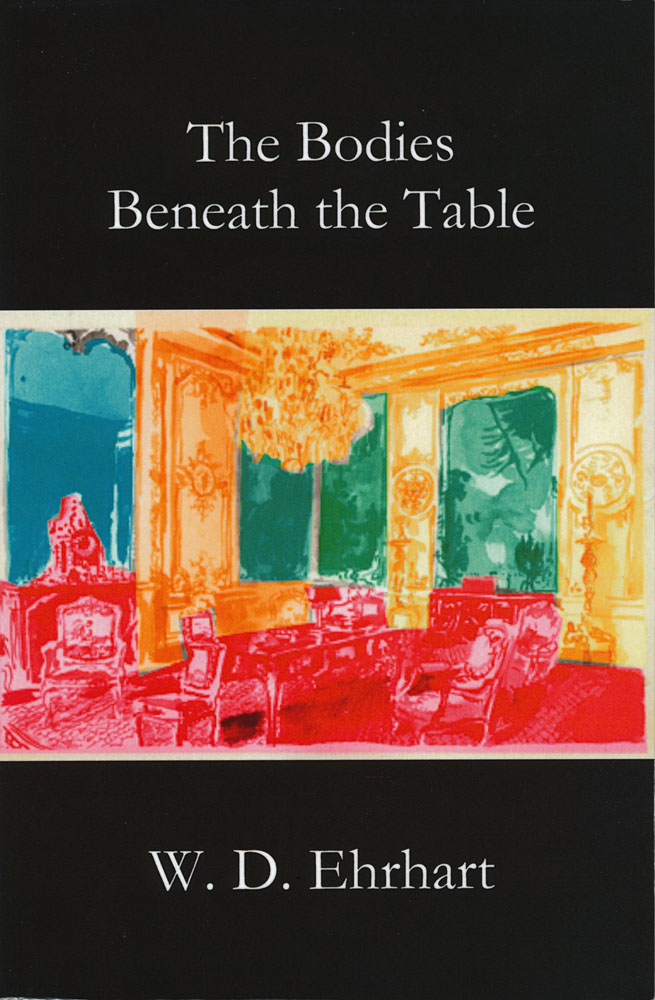 |
W. D. Ehrhart's The Bodies Beneath the TableBy Jack Miller (reviewer)The Bodies Beneath the Table
When I first read W. D. Ehrhart's poetry in high school it was simply "war poetry," because of its vivid descriptions of his combat experiences in Vietnam. Of course Ehrhart wrote quieter poetry, too, on a range of topics, but the visceral clarity of his war poems brought me somewhere shocking, a place in the soul I hoped I'd never have to visit in person. A quarter-century later, Ehrhart's latest collection of poetry, The Bodies Beneath the Table, is almost nothing but quiet, though it's a restless silence. Graphic depictions of wartime horrors number few, outstripped by childhood memories, father-daughter exchanges and hushed reflections on what he's lost – the innocence of his early years, a parenthood free from the haunting of old ghosts and the people who have gone from his life, taken by death or ideological distance. The book takes its title from the one "war poem" in the collection, which does show us the bodies – those of a Vietnamese couple "bloated like Macy's Parade balloons, / only unrecognizable lumps on / shoulders where heads should be." They had crawled under a table, the only shelter they had from the bullets, and huddled together to wait for the inevitable end. The poem's final stanza colors every other poem in the book – not "war poetry," but the poetry of everyday life that's been permanently stained by war: All these years I've wondered how they died. Who were they. Who remembers. Ehrhart remembers them without knowing them. With a wry nod to an endless cycle, the poem's dateline of "Hue City, 1968" continues with "or was it Fallujah, Stalingrad, or Ur?" Cycles are important to Ehrhart; are everywhere in these poems. In one, he calls out the President for saying "we must teach our children...that violence is not the answer" while simultaneously bombing Belgrade. In others he notes that he grew up learning "to be angry all the time," only to find that he's raised an angry child himself; that he teased kids at school and now his daughter is likewise teased to tears. There's a clear sense of frustration when he describes these repeating patterns, as several poems relate an intolerable situation with no apparent exit, ending with "I don't know how" or "now there's nothing I/can do." This imbues the poems with a certain cynicism, but it's a smart cynicism and never lapses into despair. He rejoices, for example, in spending Christmas Eve with his daughter,"tonight I'm a man who knows / what he's got." In one of the book's strongest pieces, he waits up all night for the arrival of a friend who "freaked," nervous because of his rage and gun – it ends not with gunfire, but a quiet breakfast, as Ehrhart says, "I only know you were always a friend / I'd bet my life on. I did. And I won." It's clear that he hasn't lost hope. He also hasn't lost his sense of humor; there's a vein of dry wit running through all the poems. Some are downright funny. "Oh, Canada" is a self-aware rant about imported paper cups. "Life in the Neighborhood" is a whimsical account of how he tames a pink rhinoceros in a neighbor's garden when the police do nothing. "Turning Sixty" is literally his poem "Turning Thirty" with a little gray hair thrown in. Again a cycle – thirty years later, he still asks the same questions: "what causes laughter, why / [do] nations go to war, who paints the startling/colors of the rainbow on a gray vaulted sky,/ and when [will I] be old enough to know[?]" Ehrhart's questions beget our own. Had I not read his poetry in high school, would the Nintendo-like blips on CNN a few years later have been as horrifying? When the anchormen said Baghdad was "lit up like a Christmas tree," would I still have cried tears of frustration and disgust? Would I have stayed up all night to protest, had Ehrhart not shown me the bodies so carefully kept off-camera? As a nation we continue to experience a "life during wartime" free from visible consequence and rife with distractions: as we grow older and more tired, as we grow preoccupied with college costs and variable-rate mortgages, how do we keep the notion of trading a few foreigners' lives for a little extra sleep from starting to sound almost rational? How do we break these cycles? Ehrhart would insist that he doesn't know, but he at least points us in the right direction. This is not "war poetry"; it runs deeper, and its honesty keeps us honest. Jack Miller is not a veteran but is a poet. By a strange coincidence, one of his poems recently appeared in San Pedro River Review alongside "Artsy Fartsy, Whiskey & Girls," one of the 41 poems in Ehrhart's The Bodies Beneath the Table.
|


